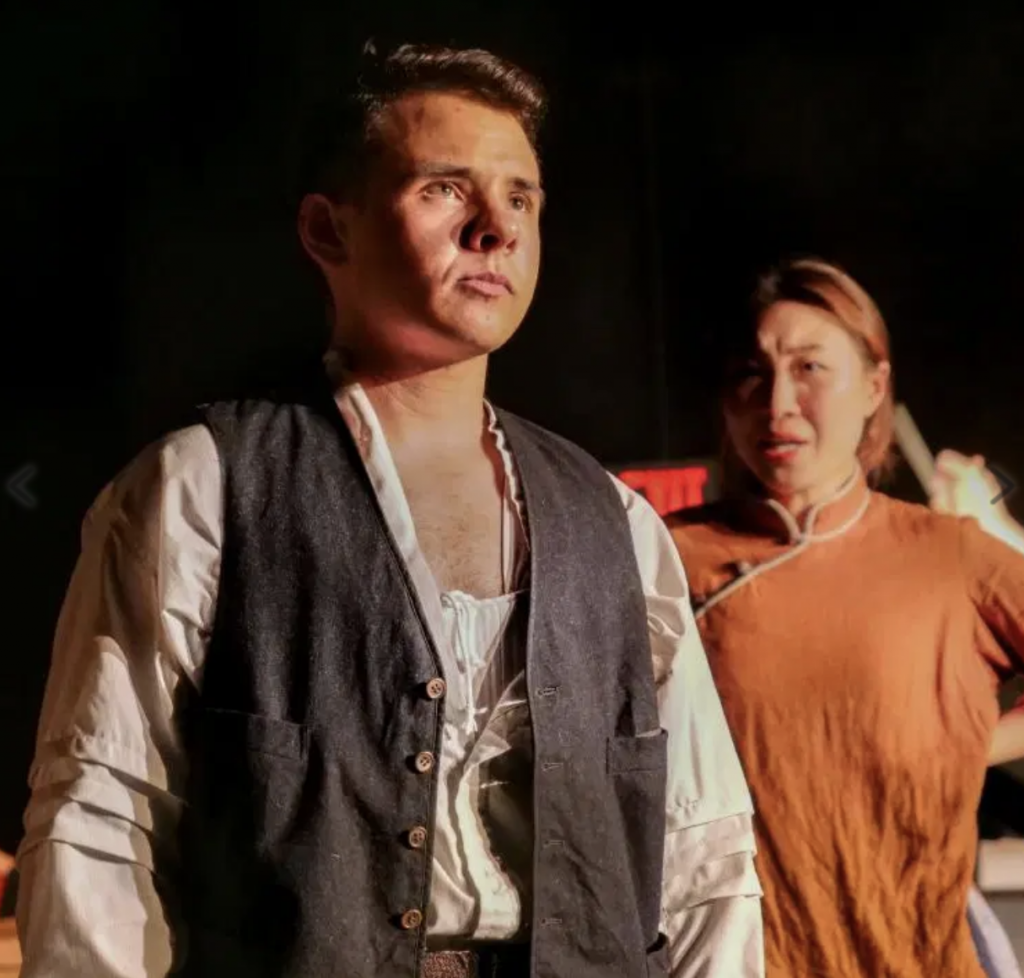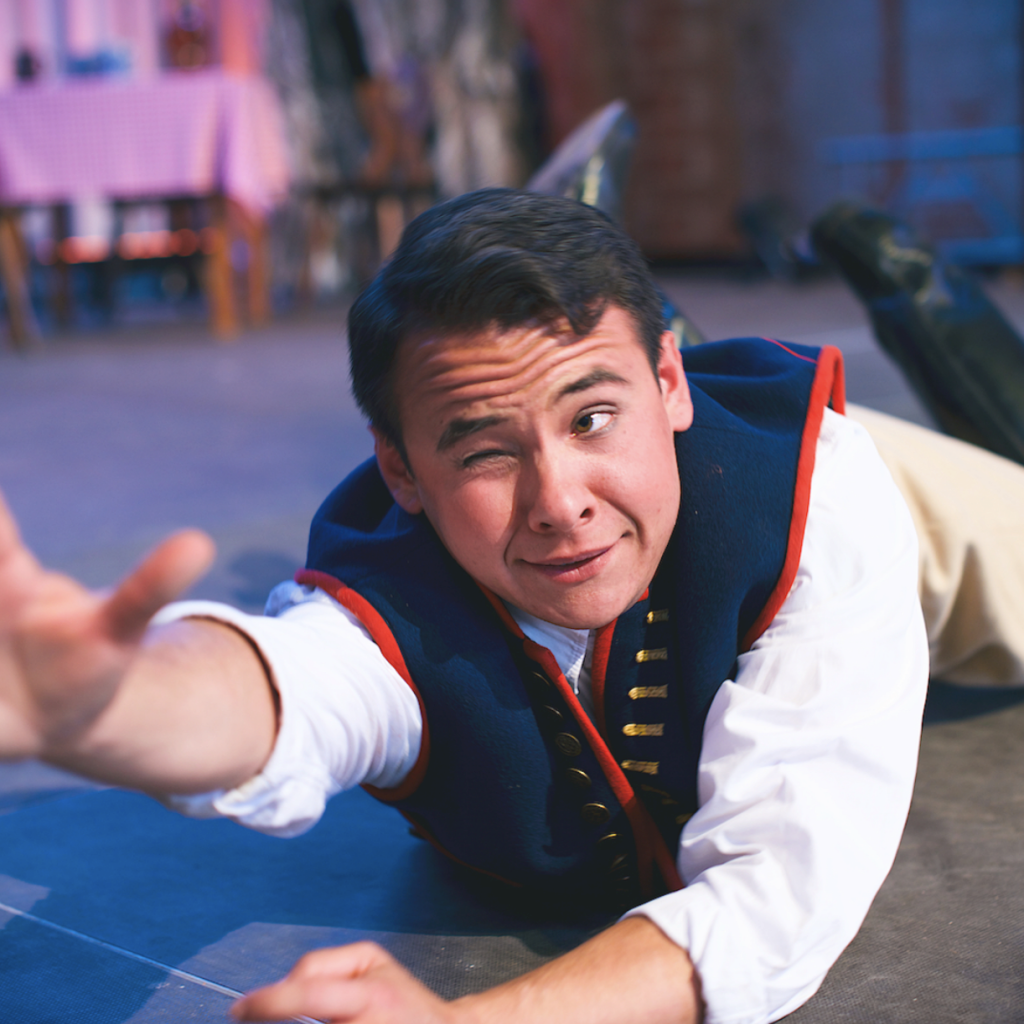
The chamber opera “Good Country” tells the true story of a stagecoach driver during the California Gold Rush named Charley Parkhurst. Parkhurst was born a girl, Charlotte, in 1812 but ran away at the age of 12 to live and work as a man, assuming the name Charley. No one knew Parkhurst's secret until he died in 1879 and The New York Times sensationalized the death with the headline: “Thirty Years in Disguise: A Noted Old Californian Stage-Driver Discovered. After Death. To be a Woman."
The tenor who played Parkhurst in the 2019 premiere of “Good Country” is Holden Madagame, an internationally-acclaimed opera star and transgender man.

Madagame is part of a robust community of LGBTQ+ classical musicians. Colorado alone claims notable lesbian conductors Marin Alsop and Cynthia Katserelis, as well as gay members of the Colorado Symphony and Central City Opera, and local LGBTQ+ community choirs. Guests to Colorado’s many summer music festivals represent the entire LGBTQ+ spectrum.
But while gay, lesbian and bisexual musicians can be found at the highest levels of classical music, transgender musicians lack that same visibility. Transgender trailblazers like actress Laverne Cox, Stonewall activist Marsha P. Johnson, and even Charley Parkhurst are celebrated, but trans people still face legal and social discrimination.
Virtuoso classical pianist Sara Davis Buechner wrote a New York Times article in which she described undergoing a botched gender reassignment surgery in Thailand. In 2003, after coming out as Sara, many of her U.S. concerts were canceled and contracts broken — even though before her transition she had been a highly sought-after and award-winning performer. She left for Canada, where she taught and performed. Today, she’s back in the U.S. teaching at Temple University in Philadelphia.
For singers, transitioning is as much about vocal identity as it is gender identity. Transgender individuals often take hormone replacement therapy (HRT) to outwardly match their gender identity. Holden Madagame was a trained mezzo-soprano, but testosterone hormone therapy placed his voice in the tenor range. Testosterone thickens vocal cords, and once that happens, vocal cords cannot shrink.
“There was a lot of grieving,” Madagame said. “The identity work and emotional work that went into taking testosterone wasn’t just about gender, it was about being a mezzo-soprano.”
When a trans man takes testosterone, his voice often drops to what’s been described as a “second puberty,” for two to five years. That can be devastating for artists trying to find their voice again.
“I couldn’t find anybody who had done it. All of the research I did told me if I took testosterone, my range would deteriorate, the quality of my voice would deteriorate,” Madagame told The Independent UK. It was a gamble, and could have cost Madagame his career.
“I was catapulted back to not being able to do anything at all,” Madagame said. “It’s extremely frustrating to have all of this knowledge and not be able to sing correctly. I had to have a lot of patience. Most of the vocal changes just come with time.”

Estrogen hormone therapy for trans women is different; it does not alter the voice the same way. Operatic soprano Breanna Sinclairé became the first openly trans woman to sing the national anthem at a professional sporting event. Sinclairé has an impressive four-octave range and told KQED that she can sing as a baritone if she wants to, "But no, that's just not who I am." Sinclairé chooses to sing soprano and achieves this through practice.
Holden Madagame’s voice is more limited. But he says he loves the roles he gets – known as “character tenor” parts, like a mad scientist in “Tales of Hoffmann” or a fawning fan boy in “Ariadne auf Naxos.”
“It’s not even playing a gender anymore, it’s just a character,” he said.
The history of gender-bending and blurring in opera is long: in 17th century Italy, boys with promising vocals were castrated to keep their voices high, and presented onstage as women. These “castrati” were superstars and considered the most committed artists. But the practice eventually stopped, especially as women were allowed onstage. And women have often crossed gender lines, performing “trouser roles,” or male characters written for a higher voice, dressing and presenting as male onstage. These roles exist in old and new operas.
Holden Madagame keeps a blog in which he wrote that when he still identified as female after college, he was cast as Cherubino in “The Marriage of Figaro.” Cherubino is a “trouser role,” so Madagame was a woman singing as a man, who in the twists of the plot, also crossdresses as a woman. Playing that role and passing to the audience as a boy was an eye-opening part of Madagame’s coming out experience.
“After the show, my friend told me her grandfather thought I was a boy. I was perhaps too ecstatic,” Madagame wrote.
Madagame has written that visibility as a transgender classical musician is a privilege and a public service, and that while it’s not something he wants to talk about every day, he receives messages from other trans singers who are apprehensive about taking hormone therapy and losing the ability to sing. He proves to the world that it’s possible.
“Opera and singing is extremely important to me and I would be extremely sad if I couldn’t sing anymore. I was sad when I thought that might be the case,” Madagame said. “The sooner you can let go of the idea that singing and opera is everything, the sooner you can make decisions for yourself and for your career, and your gender if applicable.”

You can listen to CPR Classical by clicking "Listen Live" on this website. You can also hear CPR Classical at 88.1 FM in Denver, on radio signals around Colorado, or ask your smart speaker to “Play CPR Classical.”








